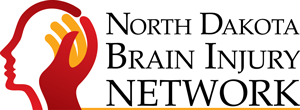North Dakota Brain Injury Network Receives Justice Program Grant
Oct 23, 2024
 The North Dakota Brain Injury
Network (NDBIN) received a $550,000 grant from the
U.S. Department of Justice to address mental health in
state correctional facilities. The Justice and Mental
Health Collaboration Program is a three-year grant that
will run from October 2024 through September 2027. NDBIN
is housed at the Center for Rural Health at the
University of North Dakota School of Medicine & Health
Sciences.
The North Dakota Brain Injury
Network (NDBIN) received a $550,000 grant from the
U.S. Department of Justice to address mental health in
state correctional facilities. The Justice and Mental
Health Collaboration Program is a three-year grant that
will run from October 2024 through September 2027. NDBIN
is housed at the Center for Rural Health at the
University of North Dakota School of Medicine & Health
Sciences.
Screening, Support, Referral
Some studies have shown that up to 87% of individuals in the criminal justice system report having had a brain injury at some point in their life. Those individuals require increased levels of health and psychological services compared to those without a brain injury.
Lower rates of completed treatment, more disciplinary incidents, higher rates of recidivism, and higher levels of substance use prior to incarceration all put additional strain on the correctional facilities and don't adequately rehabilitate the individual.

"The overall goal of this project is to further develop and implement brain injury screening, support, and referral protocol for justice-involved individuals with the goal of reducing recidivism," said Carly Endres, senior project coordinator of NDBIN.
The North Dakota Department of Corrections and Rehabilitation (DOCR) is in the planning stages of implementing brain injury screening at the state penitentiary in Bismarck and NDBIN is working closely with the agency on the screening processes. Additional steps will be taken to work with the individuals who have sustained brain injuries to help them understand their symptoms and learn how to manage those symptoms and make healthier choices.
Additional Resources
NDBIN has been working with the National Association of State Head Injury Administrators (NASHIA). Through one of the NASHIA training programs, NDBIN has taken part in intensive technical assistance to help states build capacity of correctional organizations to provide the screenings, offer support to improve outcomes, and to identify community resources to help ensure successful reentry into the community.
Assistance was also given from NASHIA to allow North Dakota to develop an online brain injury screening portal for community behavioral health providers and the development of a brain injury endorsement for the state's Peer Support Specialist Certification.
"We are excited to work with DOCR," said Endres, "to help the correctional officers and incarcerated individuals understand more about how brain injury can affect a person's behavior and how those behaviors can be managed in a positive way."
About North Dakota Brain Injury Network
The North Dakota Brain Injury Network provides information and support to individuals with brain injury and their family members. Resource facilitators assist with navigating the service system and provide technical assistance in finding the right resources for each individual. The program offers outreach and education to increase public awareness of brain injury, as well as peer support by connecting people with others who have experienced a brain injury.
